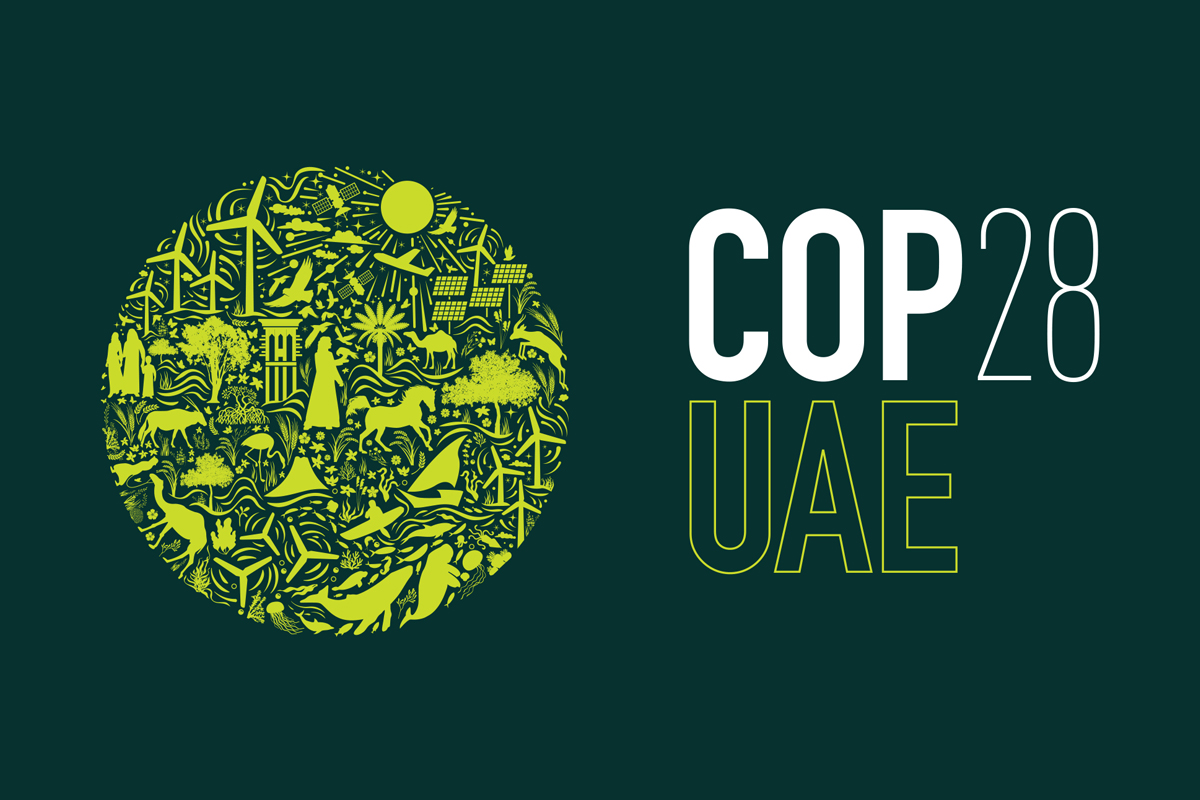COP28 Conference Updates

Day 1
30 November 2023
Day one of the COP28 climate summit saw the first big breakthrough: agreement on a “loss and damage” fund to compensate poor states for the effects of climate change.
The agreement means wealthy states and major polluters will put millions of dollars towards a fund that will in turn distribute funds to poor states harmed by climate change. The fund will be administered by the World Bank. Initial commitments amount to US$430 million.
Day 2
1 December 2023
The first of three high-level events focusing on the global stocktake gets underway on Day 2. The first topic up for discussion? Adaptation.
As climate change threatens all countries around the world, increased adaptation action is urgently needed to reduce and respond to increasing impacts, particularly for those who are least prepared for change and least able to recover from disasters.
Delegates at the high-level event on adaptation will discuss how the stocktake’s outcome can bolster efforts for countries and communities to better adapt to the impacts of climate change.
Day 3
2 December 2023
- More than 120 countries have signed a declaration acknowledging people’s health needs to be protected from the impacts of climate change. It commits them to meet and collaborate on addressing climate-related health impacts such as extreme heat, air pollution and infectious disease.
- 117 governments have pledged to triple the world’s renewable energy capacity by 2030 and reduce fossil fuel use.
- 50 oil and gas companies representing more than 40 per cent of global oil production have committed to cutting emissions from their operations.
Day 4
3 December 2023
- COP28’s Gender Day is focusing on ensuring inclusive policies for a just transition that recognizes women’s crucial role in fostering resilient communities and effective climate action, emphasizing the need to improve the gender-responsiveness of climate resources and finance.
- Philanthropist Bill Gates opened Health Day with a speech that made clear the links between climate change, health, and finance. He said it was “thrilling to have a health-focussed event at the COP”. He went into the impacts that climate change is having: “vector-borne diseases are showing up in places they never did before”, flooding leads to more mosquitoes and diarrhoea, and heat stress on farmers leads to less productive crops.
- Around 70 countries and 39 organisations have backed a declaration which focuses on boosting financial support for climate resilience in war-torn and fragile settings. Called the ‘Declaration on Climate, Relief, Recovery and Peace’, it calls for enhanced financial support for climate adaptation and resilience in these places.
- The number of countries protected from extreme weather by early warning systems has doubled since 2015. As of March 2023, 101 have some kind of early warning system in place – six more than last year – according to a new UN report.
Day 5
4 December 2023
- On Day 5, two new gap reports were released. The Adaptation Gap Report finds that progress on climate adaptation is slowing when it should be accelerating to catch up with rising climate change impacts.
- The Emissions Gap Report finds that the world is heading for a temperature rise far above the Paris Agreement goals unless countries deliver more than they have promised.
- A new ‘Gender-Responsive Just Transitions & Climate Action Partnership’ was unveiled, endorsed by over 60 Parties. With a three-year package of measures, it seeks to address the disproportionate impact of climate-related job loss on women.
- A number of countries and banks – including the UK, France, World Bank and European Investment Bank (EIB) – agreed to include more climate-resilient debt clauses in their lending. These CRDCs allow vulnerable countries to pause debt repayments when climate disaster strikes, affording them ‘breathing space’ to recover.
Day 6
5 December 2023
- Focus turns to energy and industry, the just transition, and Indigenous Peoples
- A major new report has found that we have just seven years of carbon budget left before the world shoots past 1.5°C. Global carbon emissions from oil, gas and coal have risen again this year – up by 1.1 per cent on 2022 levels to reach an estimated 36.8 billion tonnes.
- More than 60 countries signed up for a pledge to slash emissions from cooling. The Global Cooling Pledge calls for countries to reduce their cooling-related emissions by at least 68 per cent by 2050.
- US special climate envoy John Kerry has launched an international plan to boost nuclear fusion technology. Kerry told an event at the UN climate summit that there was “potential in fusion to revolutionise our world”.
Day 7
6 December 2023
- The Executive Secretary of UN Climate Change has pushed for negotiators to put their money where their mouths are, saying nothing will happen without finance. Speaking to press in Dubai, Simon Stiell said that negotiators have a “starting text on the table” over the Global Stocktake.
- An announcement from earlier in the week, but one pertinent to today’s-built environment theme. The world’s 10 largest concrete and cement companies are getting serious about decarbonising their highly polluting industry, according to a new report. CEMEX and Holcim, the biggest cement producers in the UK and US respectively, are among the stakeholders in a new strategy to get to net zero emissions within 25 years. These two titans of the material world are responsible for 8 per cent of global CO2 emissions: more than aviation and shipping combined. A new partnership between the big firms, architects, engineers, and other experts includes the first net zero strategy anchored in “granular economic modelling”.
- A Joint Outcome Statement on Urbanization and Climate Change, supported by dozens of national ministers of environment, urban development, and housing. It lays out a 10-point plan to build climate action into different levels of government, and make sure enough adaptation finance is reaching cities.
7 Dec – COP28 Rest Day
Day 8
8 December 2023
- Today’s COP28 theme focusing on youth and children saw the hosting of the second edition of the RewirEd Summit, which places education at the forefront of the climate agenda. Speakers at the Summit included ministers, UN representatives and industry leaders, and sessions focused on youth action and solutions to climate change, climate education and creating education systems for a sustainable future.
- Governments will take a decision on the global stocktake at COP28, which can be leveraged to accelerate ambition in their next round of climate action plans (known as “nationally determined contributions”) due in 2025.
Day 9
9 December 2023
- With nature in the spotlight at COP28 today, 21 countries have endorsed the Mangrove Breakthrough, a project to restore and protect 15 million hectares of mangroves globally by 2030. Not only are mangroves biodiversity hotspots, but they also act as carbon sinks, improve, and maintain local water quality and help reduce coastal erosion.
- Leaders from governments, civil society, and the business sectors convened at the Forest & Climate Leaders’ Partnership (FCLP) COP28 Ministerial with renewed ambition for taking action in accordance with the 2021 Glasgow Leaders’ Declaration on Forests and Land Use.
Day 10
10 December 2023
- Food day got off to a flying start with the announcement that a “vanguard” of countries including Brazil and Norway are grouping together to transform their food and land use systems.
- The International Energy Agency warned that emissions-cutting pledges made by more than 100 countries and 50 fossil fuel firms at the start of COP28 aren’t enough to limit global warming to 1.5°C. 2 December. If these pledges are delivered it would reduce emissions by 4 billion metric tonnes of CO2 equivalents by 2030. That is 30 per cent of what is needed to limit warming to 1.5C above pre-industrial levels.
- Established under the Paris Agreement in 2015, the global goal on adaptation (GGA) is a framework to help channel money for adaptation – and get it flowing on the same scale as finance for mitigation (which concerns supporting countries to cut emissions). After two years of work, a draft text on the GGA was published this morning, to a mixed reception from campaigners and experts.
Day 11
11 December 2023
- COP28 presidency released a long-anticipated draft text that doesn’t include the phrase ‘phase out’ fossil fuels – much to the disappointment of various countries and campaigners.
- EU Climate Commissioner Wopke Hoekstra said that as it stands now, it is “disappointing” and “not adequate to address the problem we are here to tackle”.
- Many NGOs, campaigners and civil society groups have also said that it is inadequate.
- Small Island States are concerned that their voices aren’t being heard in talks, claiming “several other Parties have enjoyed preferential treatment, compromising the transparency and inclusivity of the process”.
- Brazil was formally chosen as the host of COP30, and Azerbaijan was also confirmed as the host of COP29 next year.
Day 12
12 December 2023
- US, EU and small island states are among those pushing for stronger language on fossil fuels after the draft text released yesterday was deemed “insufficient”.
- COP28 presidency said it hoped the draft yesterday would reveal countries’ “red lines” and “spark conversations”. It definitely did that.
- UK climate change minister Graham Stuart returned to London from Dubai much to the dismay of climate campaigners and politicians. He is due to return after a vote in the UK parliament this evening.
- There are signs progress is being made and the COP28 President plans to continue consulting with negotiating groups and parties well into the early hours of tomorrow morning.
Day 13
13 December 2023
Fossil fuels in a COP agreement for the ‘first time ever’
“The world just adopted a historic decision at #COP28 to set in motion an irreversible, accelerated transition away from fossil fuels. With that, we have achieved what we set out to do: keep 1.5 within reach and mark the beginning of the end of fossil fuels” Wopke Hoekstra (@WBHoekstra) December 13, 2023
What’s actually in the COP28 deal?
The biggest point for many is the call for countries to transition away from fossil fuels – the first-time reducing fossil fuel use has been explicitly mentioned in a COP text. The text recognises that greenhouse gas emissions will peak but also that pathways developing and developed nations take to shift away from fossil fuels will be different.
Loss and damage were headline news at the beginning of COP28. Recognition that the finance currently being provided by richer countries for poorer nations to adapt to climate change and transition away from fossil fuels is not enough is in the text.
Methane pledges were also big news and calls to reduce emissions were included in previous drafts.
Nature has also become a firm part of this climate agreement. For the first time, the Global Biodiversity Framework, and a reference to halting deforesting by 2030.


